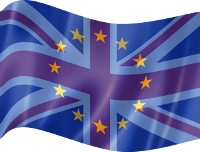Bill Emmott - 08/01/2018
Just say ‘No’ to government’s Brexit waffle

Tony Blair is right: the target for those opposed to leaving the EU can be defined as “the Tory Brexit”. But, more than that, it is also a Tory-dividing Brexit. This characteristic needs to be exploited as much as possible, as soon as possible. The way to do so is to force every discussion on to specific commitments and plans. No more fudge and evasion.
The government has begun the new year in just the way it waffled its way through 2017: by trying to stick to abstractions about Brexit, rather than saying anything concrete. We saw last year how the official claim in defence of such waffle – we have to conceal our plans in order to strengthen our negotiating position – was hogwash. In every week of 2018, patriotic opponents of Brexit must seek ways to force ministers to be concrete.
Michael Gove is another past master at this art. The environment secretary’s speech to the Oxford Farming Conference on January 4 was a classic, filled with smart details and specific insights about everything except what really mattered, namely the government’s actual plans for farm support after Brexit.
Gove was totally free and easy with his condemnations of the EU’s Common Agricultural Policy (CAP) for its inefficiency and for the fact that it sends much more money to big landowners than to small ones. The CAP is not a difficult target. And it is clear that if there is to be any real economic benefit from Brexit, one big ingredient of that would likely need to be cheaper food imports and less public money spent on farm subsidies.
But did Gove actually say what he wants to replace CAP support with? Of course not. He stuck to abstractions: the new policy would be more efficient, it would bring back control, it would be more modern, it would be more effective at encouraging environmental stewardship. On every issue on which specifics are necessary – how farming and food standards might be reconciled with the EU’s in order to avoid a “hard border” for Northern Ireland, how much public money would actually go to farmers, what the UK’s trading regime for farm products might be – he failed to deliver any insight.
Neither individual ministers nor the government as a whole must be allowed to get away with this any longer. The government’s desire is to continually kick cans down the road, deferring hard choices or the announcement of concrete plans so as to maintain Conservative Party unity and to keep the Democratic Unionist Party on board. The task of everyone who is opposed to Brexit must be to put ministers and the government on the spot, at every opportunity.
There promises to be a key battle over whether the UK should leave the EU’s customs union. For Leavers, it is vital to do so in order that Britain can negotiate its own trade arrangements with non-EU countries. But it is also a step that will add complexity and bureaucracy to businesses of every kind in their dealings with what is by far our biggest trading partner – including on the island of Ireland. The trade-off is there to be exposed: the extra costs to business, the potential loss of jobs and/or incomes, against the claimed benefits of new trade pacts with non-EU countries.
The Labour Party is edging its way towards favouring the UK staying in either “the” EU customs union, or “a” customs union with the EU. If this issue can be brought to a head in a House of Commons debate, it could offer another chance for Labour to attract a group of sensible, patriotic Tories to vote with them.
Reported plans for Britain to stay under the jurisdiction of the European Medicines Agency after Brexit, as well as those for aviation and chemicals, offers another opening. All of these intentions are sensible, but they will involve two things that make the Johnsons, Rees-Moggs and Duncan Smiths gag – staying under the jurisdiction of the European Court of Justice (ECJ), and being subject to any and all new rules in the future, without any influence over what they may be.
In Switzerland, diplomats smuggled in roles for the ECJ adjudicating over bilateral treaties under the noses of eurosceptics by hiding them in technical details and keeping them out of the headlines. The right approach for Remainers must be the opposite: put every hint of an ECJ role in a bright, merciless light, forcing the Brexit ayatollahs to confront reality.
That must be the key phrase for 2018: confronting reality.
Credits
Reproduced with kind permission of InFacts.org. Article by Bill Emmott, a writer and campaigner best known for his period as editor-in-chief of The Economist (1993-2006), and a director of InFacts,
 ourEU.UK
ourEU.UK